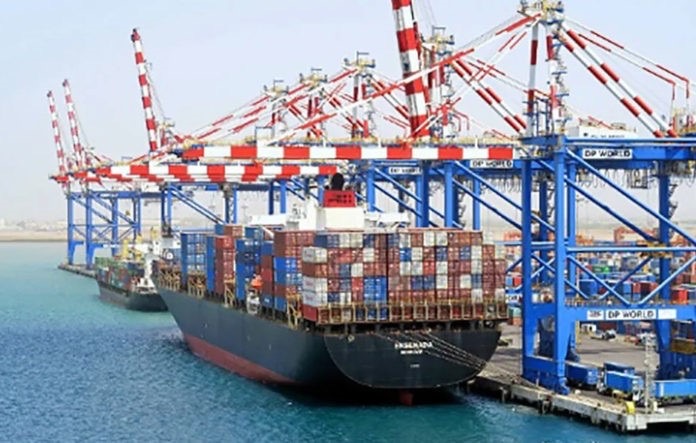Many evidence-based studies and reports have shown that intra-trade among countries on a continent is very important, as it helps to, among other things, engage in more knowledge transfer and create more value while exchanging more manufactured goods.
However, in the past, the story was not the same in Africa, as intra-African trade faced several hurdles that limited its impacts and contributions to overall trade and development on the continent.
To change the narrative, several efforts have been made to address the challenges inhibiting trade, one of which is the African Continental Free Trade Area Agreement (AfCFTA), which commits African countries to remove tariffs on 90 percent of all goods, seek ways to remove other non-tariff barriers and liberalise trade in services to allow for easy trade among member countries.
This article will provide some insights into how the AfCFTA is helping to improve intra-African trade.
The AfCFTA was signed in March 2018 but became operational on January 1, 2021. Before it became operational, intra-African trade accounted for around 10 to 13% of total trade on the continent, but with the agreement, trade among African countries improved to 20% as of 2022, according to data from the United Nations Economic Commission for Africa.
Among many other factors that contributed to its development is the AfCFTA’s Guided Trade Initiative, which so far has eight countries as participants.
The Guided Trade Initiative, GTI, launched in October 2022 in Accra, Ghana, facilitates trade between interested parties by connecting their businesses and products for export and import.
Under this initiative, compared to what was obtainable before, participants have engaged in some intra-trade in products such as coffee, sugar, pasta, dried fruits, batteries, ceramic tiles, corn starch, etc. to aid the diversification of exports and improve their value chains.
Working alongside other stakeholders in the private sector, the AfCFTA secretariat, through the GTI, is playing a trade facilitation role that has increased trade participation within the continent.
For illustration, the AfCFTA has a memorandum of understanding with a logistics company based in Accra, Ghana, McDan Aviation, that has committed two cargo planes and one vessel under the initiative to aid the movement of goods across borders.
Also, through the initiative, the AfCFTA Secretariat supports the eight countries in overcoming barriers in trading, such as shipment and customs clearing, and also presents an opportunity to monitor the impacts of trade documents and procedures to ensure they are in tandem with AfCFTA procedures.
With some level of success recorded in the pilot phase with the countries, namely Cameroon, Egypt, Ghana, Kenya, Mauritius, Rwanda, Tanzania, and Tunisia, representing the regions of Africa, the AfCFTA plans to expand the initiative to include more products and participants so that all member countries can benefit from it and increase intra-trade among themselves.
Also, by identifying some priority trade value chains and creating mechanisms to support their content development, the AfCFTA has had remarkable impacts on intra-trade on the continent.
The trade value chains, namely agro-processing, transport and logistics, pharmaceuticals, partnerships, and funding mechanisms, have in no small measure ensured more productivity across countries, thereby increasing the need to trade with one another.
For instance, the agro-processing value chain has supported some countries to increase the production of products such as fertiliser, cereals, oilseed, and other agricultural products and sell them to neighbouring African countries.
Another key area where the AfCFTA has so far made an impact on intra-African trade is the digital trade framework.
As African countries are gradually embracing digital trade, which has become a necessity for economic growth worldwide, the AfCFTA has also reviewed its framework to include a digital trade framework that helps to streamline customs and other agencies to promote trade among African nations.
Alongside the digital framework, the Trade Facilitation Agreement of the AfCFTA enables countries to adopt ICT in customs and other related procedures, which has in turn boosted the efficient and cost-effective movement of goods across countries.
By embracing digitalization, many physical barriers and logistics challenges have been reduced. For instance, from the AfCFTA hub, trade-related information regarding business opportunities, possible markets, prospects, regulatory requirements, and others can be easily accessed and processed, thereby making trade seamless.
To support more digital participation and encourage innovation and investments within African states for enhanced trade, the AfCFTA has comprehensive coverage of digital trade, which includes trade in goods and services, intellectual property rights protection, and investment promotion, which has also helped improve traders’ confidence in intra-trade.
In the area of accessing finance, especially for SMEs, which make up a huge percentage of business across Africa, the AfCFTA is doing a lot and has impacted and strengthened small and medium enterprises’ participation in intra-African trade. Having identified lack of financial access as one of the problems hindering trade among countries on the continent, the AfCFTA secretariat is partnering with financial institutions to provide funding to allow the SMEs to expand their market reach, seize new opportunities, and improve their productivity for imports and exports.
For instance, the AfCFTA entered into a partnership with the United Bank for Africa (UBA) to support SMEs in fully participating in intra-African trade. Under the agreement, the UBA will dedicate $6 billion for the capacity building of qualified African SMEs that desire to participate in intra-African trade under the AfCFTA.
The partnership also allows for risk managers, financial institutions, and investors to support SMEs as Special Purpose Vehicles to expand their horizons, explore regional markets, and promote local productions.
Generally, such partnerships and efforts targeted at making finance accessible have provided some SMEs with the necessary tools needed to benefit from the abundance of the AfCFTA to boost intra-African trade.
While intra-African trade has been jerked up a bit due to the partial implementation of the AfCFTA arising from non-full participation from member states, it is pertinent to state that the agreement has the potential to improve overall trade on the continent.
Having been described as a dynamic market with the potential to be the world’s largest free trade area since the World Trade Organisation, the AfCFTA, according to the United Nations Economic Commission for Africa, is estimated to have the capacity to boost intra-African trade by over 50 percent if fully implemented.
With the year 2023 tagged as the year of the AfCFTA, and with just a few months until the end of the year, relevant stakeholders need to work to ensure that, if nothing else, the AfCFTA instruments are deployed effectively to ensure that intra-African trade is improved and explored maximally.


